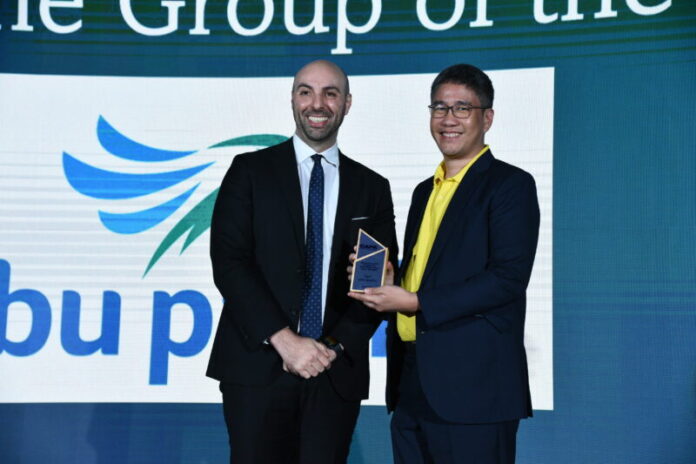
-
Cebu Pacific has received the Asia Environmental Sustainability Airline/Airline Group of the Year award from the Centre for Aviation (CAPA) for its leadership in sustainability performance in the regional aviation industry
-
Cebu Pacific says it began its sustainability journey through early investment in fuel-saving aircraft
-
The carrier intends to operate an all-Airbus Neo fleet by 2028 to remain true to its commitment to provide low fares while becoming more efficient and environment-friendly
-
This year, Cebu Pacific started using sustainable aviation fuel in its aircraft deliveries and targets to use SAF across its commercial flights by 2030
Cebu Pacific received the Asia Environmental Sustainability Airline/Airline Group of the Year from aviation market intelligence provider Centre for Aviation (CAPA) for its leadership in sustainability performance in the regional aviation industry.
Cebu Pacific was selected based on its ongoing adoption of a range of sustainability programs across all segments of its operations, as well as its broader efforts to work with partners in the travel chain to ensure that local and international stakeholders enhance their own sustainability efforts, CAPA said in a statement.
Cebu Pacific chief commercial officer Xander Lao received the award during CAPA’s inaugural Environmental Sustainability Awards for Excellence in Singapore on November 3.
“We are honored to be the pioneer recipient of such an award, which should help encourage an even greater push and recognition of sustainability’s importance,” Lao said in a separate statement.
Even before the pandemic, Cebu Pacific began its sustainability journey through its early investment in fuel-saving aircraft. By 2028, it intends to operate an all-Airbus Neo (new engine option) fleet, allowing the airline to remain true to its commitment to provide low fares while becoming more efficient and environment-friendly.
“The Philippines is among the top countries at risk of adverse impacts of climate change, so our commitment to sustainability has evolved over time. Cebu Pacific is among the first low-cost carriers in the world to adopt carbon emission reduction initiatives. We are committed to investing time and resources to become the greenest airline in Asia,” said Mark Cezar, Cebu Pacific chief finance officer.
This year, the airline has beefed up its sustainability initiatives as it started using sustainable aviation fuel (SAF) in its aircraft deliveries. On September 28, it operated its first SAF-powered commercial flight, becoming the first Philippine carrier to incorporate SAF in its commercial operations.
Cebu Pacific intends to make SAF a permanent part of its operations through aircraft deliveries from Airbus. By 2030, it targets to use SAF on all its commercial flights.
“We have a long way to go to achieve the target of net zero by 2050 and we need our partners to commit, so we all succeed and create meaningful change. We encourage everyone to join us on this journey,” Cezar said.
Other airline winners that have established themselves as leaders among their peers, providing a model of operation that other airlines can aspire for, include:
- Wizz Air – Global Environmental Sustainability Airline/Airline Group of the Year, and Europe, Middle East, and Africa Environmental Sustainability Airline/Airline Group of the Year
- Delta Airlines – North American Environmental Sustainability Airline/Airline Group of the Year
- Volaris – Latin American Environmental Sustainability Airline/Airline Group of the Year
- Etihad Airways – Environmental Sustainability Innovation of the Year
- Turkish Airlines – Environmental Sustainability Innovation of the Year




